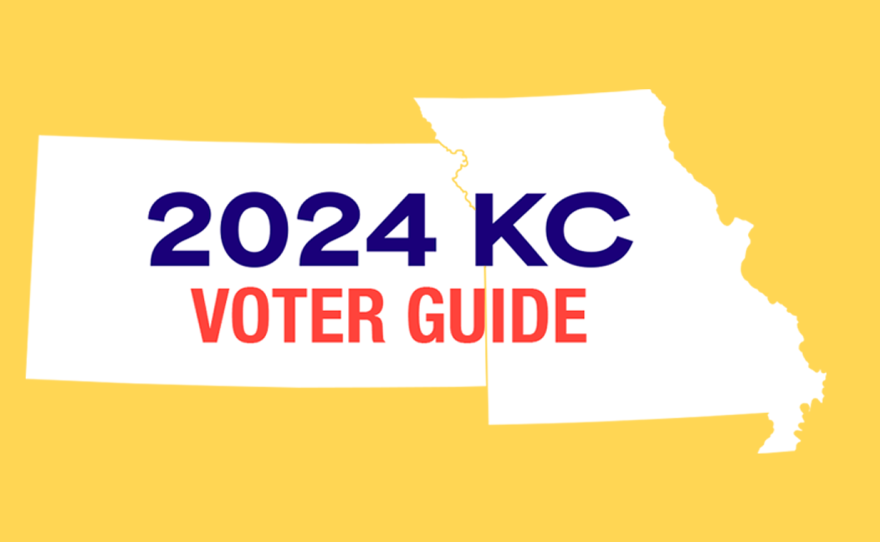Young Americans have a history of being labeled as less politically educated and engaged than older generations, based on studies of their voting history.
According to Adriana Paez, founder of the recently-formed civics education group Civic Action Alliance, these assumptions are getting further and further out of touch with reality.
“I've (heard) the myth about young people, that they are apathetic, uninformed, they don't know what's going on in the world,” says Paez. “I've seen through experience that this is absolutely not the case.”
Paez is a 41-year-old PhD student in education at UMKC. She’s recently become one of many students in Missouri who have been working to prepare the thousands of potential voters on the state’s college campuses.
Across Missouri, millennial and Gen Z students are mobilizing to help their younger peers access information about how to vote. They've put in hundreds of hours working on things such as civic engagement campaigns and voter registration drives. Research reflects the growing power of this demographic; 41 million members of Gen Z are eligible to vote this year.
As the country ages, some suggest younger voters will soon be deciding our elections. But civics education is lacking.
Another Missouri college student, Logan Kuykendall, a junior studying public administration and policy at the University of Missouri, has led many voter advocacy activities on campus. He shares Paez’s view on Missouri's young electorate being more informed than people think.
“When it comes to the election itself,” says Kuykendall, “students usually have a very good idea about what's going on. They have a good general grasp of what's on the ballot and a good idea about what it's covering.”
Kuykendall is the president of MU’s chapter of Associated Students, a nonpartisan student government organization that advocates for college students and their interests in local and state government.
According to Kuykendall, his chapter of Associated Students has engaged hundreds of students on MU’s campus this fall.
“From August to the registration deadline here in Missouri, we've registered more than 500 students and staff (to vote),” he explains. “At events that we have hosted, we’ve engaged over 1,700 students.”
Kuykendall says this engagement is part of the chapter’s election education and voter registration initiative, titled Vote Mizzou.
While the initiative has had several different areas of focus based on the timeline of the election cycle, Kuykendall says students have needed the most help with the rapidly changing details of the voting process.
“When it comes to specifics, like deadlines, when do you get (forms) notarized, what is a notary… students need help,” he says. “Which honestly is completely fair because those rules and regulations are changing what feels like every year.”
Adriana Paez’s work has similarly focused on what students need to do before they cast a vote and how the rules to do that have changed.
She says she’s been pushing to share information on Missouri's new voter ID laws. She worries many college students voting for the first time in this election are unaware of them.
“As a student in 2022, we got some of the most strict voter ID laws in the country, which included taking away students' ability to use their university IDs as voter ID (at the polls),” explains Paez. “Students were not aware of that. I started making these little zines to try and get information out.”
Paez says she’s spent a lot of her recent free time this semester creating infographics and zines for UMKC students to share on social media. Most of them focus on different scenarios for students who wanted to vote absentee — including what they needed based on their particular situation.
She has also worked to bring other student groups together to collaborate on larger events. She recently helped organize a voting resource fair at UMKC where students could learn more about the voting rules and requirements as well as what would be on local ballots.
Paez has been pleased with the feedback from the students, but worries that, despite university course requirements that include civic engagement, the majority of work being done to get students to actually participate in the election process is being done outside classrooms, by students.
“(To my knowledge) we don't have any employee at UMKC who is doing voter or civic engagement as a part of their job,” she says. “If students want to do these things, then it's kind of on them to do it. They are taking responsibility for what (I think) the university should be doing.”
Logan Kuykendall says that his chapter of Associated Students has received a large amount of help for the Vote Mizzou initiative, from Mizzou students and staff, but that most of the work is unpaid.
“Outside our staff advisor, everything else is volunteer, yes, including our own students,” explains Kuykendall. “But everyone has been absolutely amazing and beyond helpful.”
Paez worries that relying heavily on the volunteer work of student organizations and third party groups places limits on the number of students their work can reach.
As rates of civic literacy and civic education fall in the United States, Paez believes that more advocacy work is needed to push universities in Missouri to take a more active role in connecting students with voting resources and creating civic action plans.
“There're various national organizations that are encouraging college campuses to create these plans and utilize them to reach more and more students,” she says. “They can help create a more informed and engaged citizenry.”
Disclosure: KCUR 89.3 is licensed to the University of Missouri Board of Curators and is an editorially independent community service of the University of Missouri-Kansas City.






